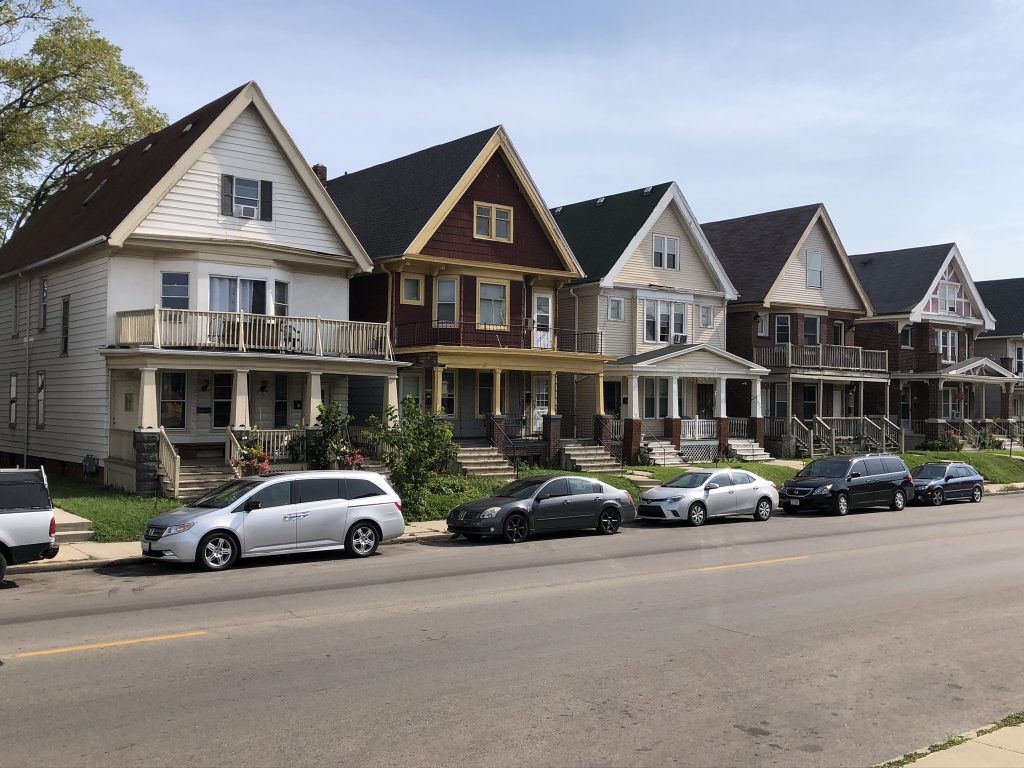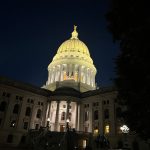Survey Finds Alarming Number of Milwaukee Homes Need Major Repairs
And one type of property owner is overwhelmingly responsible.
A growing alliance of neighborhood organizations, the Reclaiming Our Neighborhoods Coalition (RON), spent last summer pounding the pavement to survey more than 35,000 properties in 17 of the city’s oldest neighborhoods.
Its findings raise alarm about the decaying condition of buildings and who is responsible.
“In some of our neighborhoods, we see close to 50% of the homes are in need of critical repairs,” said Near West Side Partners (NWSP) Executive Director Lindsey St. Arnold Bell to the Zoning, Neighborhoods & Development Committee on April 15.
On average, 22.3% of the visually surveyed properties need at least one “major exterior repair.”
There is a clear trend regarding what ownership conditions make a home likely to need repair. “Houses owned by investors are in worse condition and nearly twice as likely to need multiple repairs, compared to our owner-occupied homes,” said St. Arnold Bell.
They’re also less likely to pay their tax bills.
“Investors also own about 47.7% of homes in RON neighborhoods, but they account for 58.6% of tax delinquent properties,” said St. Arnold Bell.
The surveyed areas form a ring around Downtown and include the Amani, Burnham Park, Clarke Square, Harambee, Merrill Park, Muskego Way, Sherman Park, Walker’s Point and Washington Park neighborhoods.
Lindsay Heights fared the worst, with 40.5% of surveyed residential properties in need for multiple major repairs. The VIA CDC survey area, the Burnham Park, Silver City and Layton Park neighborhoods, fared the best with only 6.7% of residential properties needing multiple major repairs.
According to RON’s estimates, repairing just the owner-occupied homes would cost $35 million, approximately $14,000 per property. Adding the investor-owned homes and mixed-use properties would push the cost to more than $100 million. Roof issues account for about one third of all estimated repair costs.
The data was collected by 127 paid surveyors. “What we are looking at when we go out and do the home assessments is an exterior, front-facing look at the properties, that looks primarily at the major things that could cause a person to be displaced from their home,” said Rooted & Rising Washington Park Deputy Director Adrian Spencer. Items the surveyors look for include roof and porch conditions, decaying paint suspected to include lead and failing siding. A smartphone application is used to log the data.
The group is now advocating for improved code enforcement on investor-owned properties and more resources for low and moderate income homeowners to make critical repairs.
Ald. JoCasta Zamarripa asked what the council and city could do to help.
St. Arnold Bell said policy solutions would ultimately involve both the city and state governments. “We welcome the opportunity to be in the room to talk through what options might exist there,” she said. The group is already forwarding certain issues to the Department of Neighborhood Services for enforcement.
“You can think of the RON coalition as a precursor to DNS,” said Spencer. She said the coalition tries to engage certain property owners and investors before submitting a referral.
Spencer said the coalition has begun reaching out to investors with letters after initially focusing on homeowners. “We have gotten a really big response from investors,” she said. “And what I will note from that is the investors that are local are the ones that are responsive.” Those that respond to letters, said Spencer, are smaller investors, not those who own more than 10 properties.
RON, said Spencer, plans to conduct person-to-person surveys in 2025 to connect individuals to resources to maintain their homes. It includes different surveys for owners or renters.
The RON partner organizations involved in conducting the surveys include NWSP, the Clarke Square Neighborhood Initiative, Dominican Center, Amani United Neighborhood Association, Milwaukee Christian Center, Riverworks Development Corporation, Rooted & Rising Washington Park, Sherman Park Community Association, Southside Organizing Center, VIA CDC and Walnut Way Conservation Corp. The coalition hopes to add two organizations in 2025. A small subset of organizations launched the initiative in 2024.
The coalition has relied on philanthropic support to conduct the surveys. Sponsors and program partners include Data You Can Use, LISC Milwaukee, Zilber Family Foundation, Northwestern Mutual, Greater Milwaukee Foundation, Metropolitan Milwaukee Fair Housing Council, JPMorgan Chase, Milwaukee Rental Housing Resource Center, Take Root Milwaukee, Community Development Alliance, Legal Action of Wisconsin and Regrid.
Legislation Link - Urban Milwaukee members see direct links to legislation mentioned in this article. Join today
If you think stories like this are important, become a member of Urban Milwaukee and help support real, independent journalism. Plus you get some cool added benefits.
Political Contributions Tracker
Displaying political contributions between people mentioned in this story. Learn more.






















I wonder if the city understands that it is a major part of this problem. It needs to reduce its extremely high tax rate to help homeowners afford to maintain their homes with some of those funds. Many homeowners on fixed or low income spend most of their income just keeping up with taxes and insurance.
To recap, if I am reading this right:
The majority of problems are investor owned properties (how do they get away without paying their taxes?).
– Investors own almost 50% of properties in the poorer neighborhoods.
– Investors account for almost 60% of tax delinquent properties.
– Investors account for 75% of needed property repairs.
Why aren’t the investors being fined and collected. And if they don’t pay up, throw them in jail. Maybe that would get their attention to start to do the right thing, rather than allowing them to strip assets out in cash and eventually leave the cost cleanup to taxpayers, so they can come back and do it all over again.
Good old capitalism – extract while externalizing as many costs as possible to increase profit margins.
Again, suburban Brother Cotic completely misses the point. Lowering residential property taxes will kneecap an already broke City government. I hope my new representative Alex Brower spearheads initiatives that hold these vampiric “investors” accountable for the sorry state properties and initiating a surcharge on any entity that owns more than three rental properties. That surcharge could support a program to assist elderly and/or low-income home owners to stay in and maintain their homes. The housing crisis is REAL and there are culprits!
Rubiomon & mkeumkenews09: Absolutely agree!! The number of absentee landlords failing to be accountable and take responsibility for their properties needs to be addressed and the suggestions are an excellent starting point!
Just another example of how for profit system organizations fail to meet the needs of real people. Lowering taxes on investors who are already NOT paying their taxes does nothing but penalize Milwaukee residents. Housing, education, healthcare, law enforcement are industries that for profit organizations cannot meet the needs of all the people. Instead the feed off of the people like vampires. So too, for profit organizations tend to be more corrupt than those directly responsible to democratically elected governments.
Years ago the “We Buy Ugly Houses” billboards started appearing. Little did we know at the time the negative impact these investors would have Milwaukee, and our housing stock. We have a housing crisis because of their need for greater and greater profits.
This might be an area where the city could consider setting up an apprentice program (or bringing one in if an appropriate resource already exists). The city notifies the landlord of necessary repairs; if the landlord refuses to repair, then the apprentice program steps in and gets a great learning experience. The city adds on the charges of the apprentice program to the taxes. If the taxes then aren’t paid, the house is sold at a tax auction. Get some churn in the market, so that people can afford to buy homes and fix them up themselves if they want to. Also gives local investors (rather than the national ones who could give a sh!t), the opportunity to make more investments in the community. The fact that national landlords sit on properties letting them decay, in hopes of their appreciating enough to sell, is contrary to the wellbeing of the community – it shouldn’t be allowed.